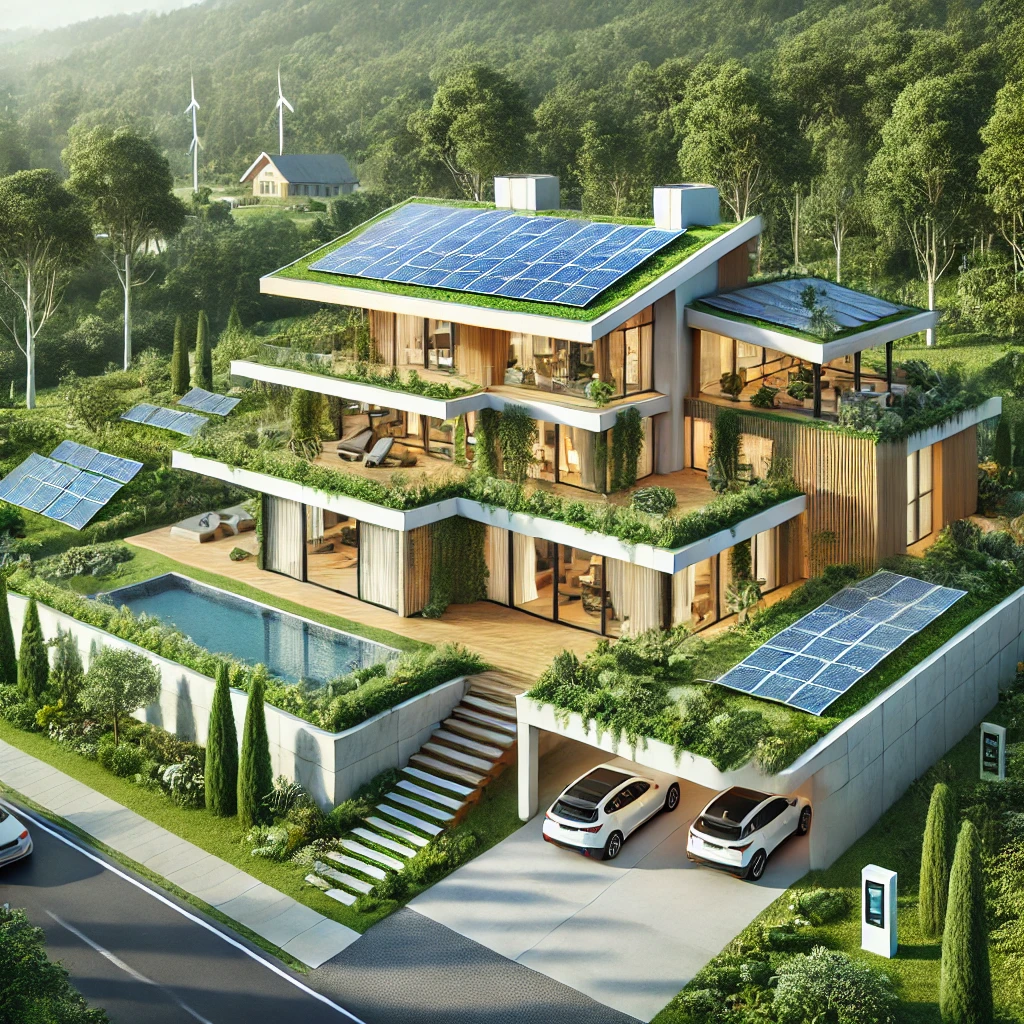
Sustainable Architecture: Designing Homes for the Future of Our Planet
As we move forward into the future, it's clear that sustainable architecture and eco-friendly living are crucial to combating climate change. In this article, we will explore how designing homes with sustainability in mind can reduce our carbon footprint and create a healthier world for generations to come. From renewable energy insights to energy-efficient innovations, we'll cover it all.
What is Sustainable Architecture?
Sustainable architecture is a design approach that seeks to minimize a building's environmental impact. It focuses on energy-efficient innovations, using renewable energy sources, and incorporating green technologies to create homes that are not only beautiful but also eco-friendly.
Renewable Energy Insights: The Backbone of Sustainable Homes
One of the most important aspects of sustainable architecture is the use of renewable energy. By harnessing sources like solar power and wind energy, we can significantly reduce the need for fossil fuels. Solar power for homes, for example, is becoming increasingly popular as a way to generate clean energy directly from the sun.
Benefits of Using Solar Energy at Home
- Reduces electricity bills
- Provides a renewable energy source
- Requires little maintenance
- Increases the value of your home
How to Make Your Home More Energy-Efficient
Improving energy efficiency is one of the most effective ways to reduce your home's carbon footprint. Small changes can have a big impact, such as installing energy-efficient appliances, sealing leaks, or upgrading insulation. Energy-efficient innovations can make your home more comfortable while saving you money in the long run.
Energy-Efficient Appliances: A Step Towards a Greener Home
Investing in energy-efficient appliances, such as refrigerators, washing machines, and LED lighting, can drastically reduce your energy consumption. These appliances are designed to use less electricity while still performing at a high level, which is perfect for anyone looking to live more sustainably.
Climate Change Solutions: Green Technologies for a Sustainable Future
As the world faces the growing threat of climate change, green technologies are playing a crucial role in reducing environmental damage. These technologies, ranging from solar panels to electric vehicles, help reduce greenhouse gas emissions and promote a sustainable way of life.
Top Green Building Techniques
- Passive solar design for natural heating and cooling
- Rainwater harvesting systems to reduce water consumption
- Energy-efficient insulation to minimize heat loss
- Green roofs and walls for natural temperature control
Best Electric Vehicles for 2025: Driving the Future of Sustainability
The best electric vehicles (EVs) in 2025 are expected to push the boundaries of what we can achieve in terms of zero-emissions transportation. Electric cars are essential for reducing our reliance on fossil fuels and cutting down on carbon emissions. These vehicles are equipped with the latest energy-efficient technologies, making them the perfect choice for an eco-friendly lifestyle.
Benefits of Owning an Electric Car
- Zero tailpipe emissions
- Lower operational costs
- Quieter than traditional gasoline-powered cars
- Tax incentives and rebates in many countries
How to Start Living Sustainably: A Guide for Beginners
Adopting a sustainable lifestyle can feel overwhelming at first, but small changes can make a big difference. Whether it's switching to renewable energy sources, reducing waste, or choosing eco-friendly products, there are countless ways to begin your journey towards a more sustainable life.
How to Live a Zero-Waste Lifestyle
Living a zero-waste lifestyle involves reducing your reliance on disposable items and finding ways to repurpose, reuse, and recycle. It's all about minimizing waste and making environmentally conscious choices, from avoiding single-use plastics to composting food scraps.
Energy-Efficient Innovations: The Future of Green Living
With advances in technology, the future of sustainable living looks brighter than ever. Energy-efficient innovations, such as smart home systems, solar-powered appliances, and advanced insulation materials, are making it easier than ever to live sustainably while maintaining a high quality of life.
Concluding Thoughts: Building a Greener Future
The future of our planet relies on our ability to embrace sustainable living and eco-friendly design. By incorporating renewable energy, energy-efficient technologies, and green building practices into our homes, we can reduce our environmental footprint and contribute to a healthier, more sustainable world. The journey towards sustainable living may seem daunting, but every step you take brings us closer to a greener, more sustainable future.